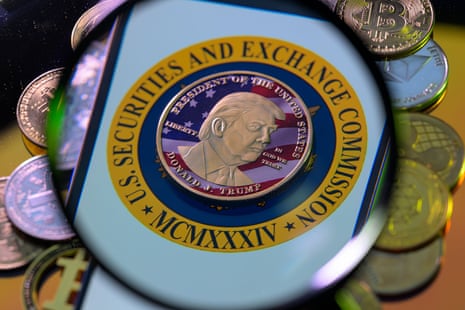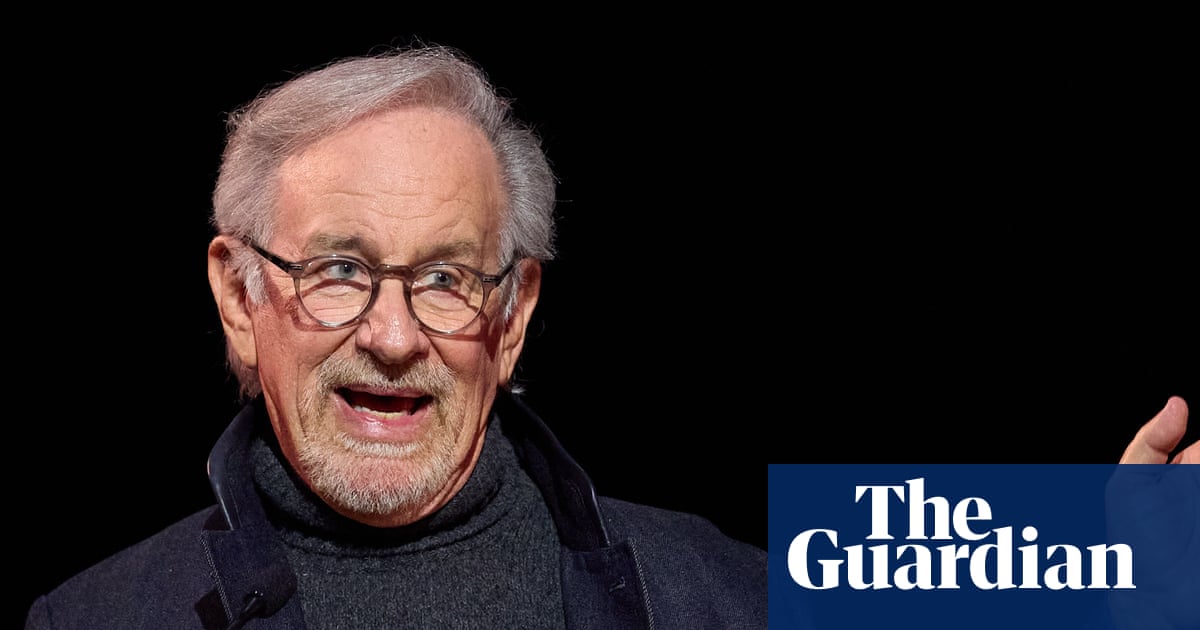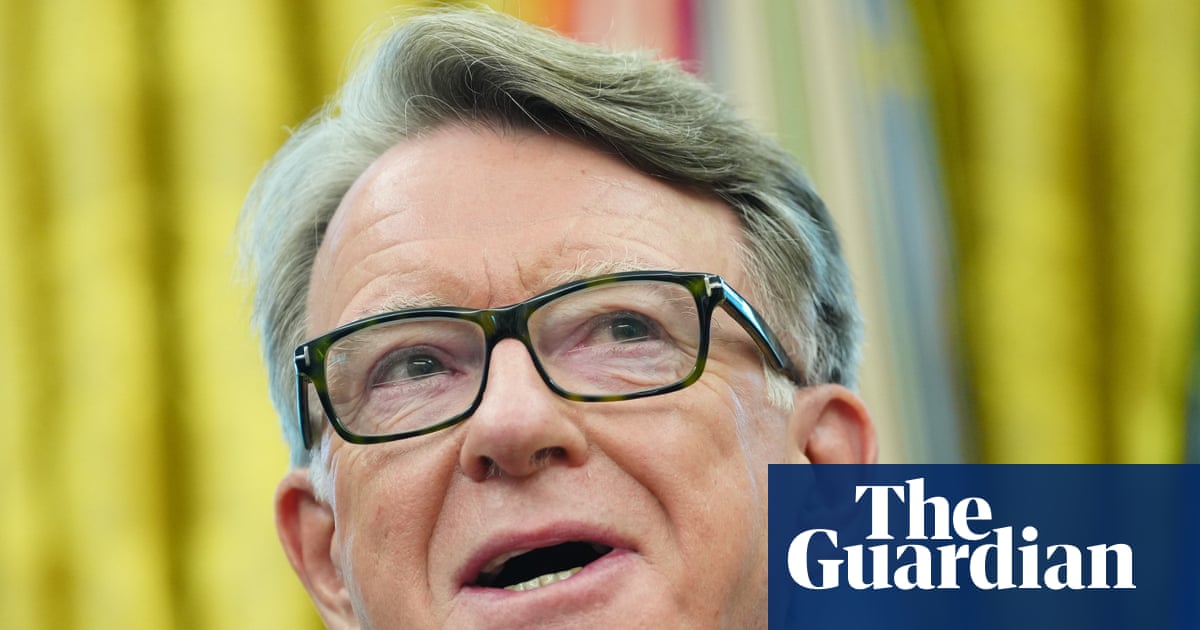White House adviser confident tariff ruling will be overturned and says three trade deals nearly done
White House economic adviser Kevin Hassett has said there are three trade deals nearly done and he expects more despite a court ruling blocking Donald Trump from imposing his sweeping tariff regime.
“There are many, many deals coming. And there were three that basically look like they’re done,” Hassett said in an interview with Fox Business Network.
Hassett dismissed a US court of international trade ruling yesterday that blocked most tariffs and found Trump had overstepped his authority as the work of “activist judges”. He said he was confident the administration would win on appeal.
The administration’s view is that numerous countries will open up their markets to American products in the next month or two, Hassett said.
“If there are little hiccups here or there because of decisions that activist judges make, then it shouldn’t just concern you at all, and it’s certainly not going to affect the negotiations,” Hassett said.
There were three deals ready for Trump’s review at the end of last week, Hassett said.
Key events Show key events only Please turn on JavaScript to use this feature
US backs Syria-Israel non-aggression agreement, US envoy to Syria says
US envoy for Syria, Thomas Barrack, has said that the United States believes peace between Syria and Israel is achievable, suggesting it should commence with a non-aggression agreement and a definition of borders and boundaries.
Barrack said that president Donald Trump would declare that Syria is not a state sponsor of terrorism.
Supreme court sides with Utah railway challenged by environmentalists
The supreme court has bolstered a Utah railway project intended to transport crude oil, ruling against environmental groups and a Colorado county that had challenged its federal approval, Reuters reports.
The 8-0 ruling overturned a lower court’s decision that had halted the project and had faulted an environmental impact statement issued by a federal agency called the Surface Transportation Board in approving the railway as too limited in scope.
A coalition of seven Utah counties and an infrastructure investment group are seeking to construct an 88-mile (142-km) railway line in northeastern Utah to connect the sparsely populated Uinta Basin region to an existing freight rail network that would be used primarily to transport waxy crude oil.
The case tested the scope of environmental impact studies that federal agencies must conduct under a US law called the National Environmental Policy Act, enacted in 1970 to prevent environmental harms that might result from major projects. The law mandates that agencies examine the “reasonably foreseeable” effects of a project.
The supreme court heard arguments on 10 December in the case, which has been closely watched by companies and environmental groups for how the ruling might affect a wider range of infrastructure and energy projects.
Environmental reviews that are too broad in scope can add years to the regulatory timeline, risking a project’s viability and future infrastructure development, according to companies and business trade groups.
The Surface Transportation Board, which has regulatory authority over new railroad lines, issued an environmental impact statement and approved the railway proposal in 2021.
The Center for Biological Diversity and other environmental groups sued over approval, as did Colorado’s Eagle County, which noted that the project would increase train traffic in its region and double traffic on an existing rail line along the Colorado River.
The US court of appeals for the District of Columbia circuit ruled in favor of the challengers in 2023, concluding that the environmental review inadequately analyzed the effects of increased oil production in the basin as well as downstream, where the oil would be refined.
The Biden administration had backed the railway coalition in the case, as did the state of Utah.
Fifteen other states supported the challengers. Colorado said its economy relies on outdoor recreation, and that the project raises the risk of leaks, spills or rail car accidents near the Colorado River’s headwaters.
Conservative justice Neil Gorsuch recused himself from the case after some Democratic lawmakers urged his withdrawal because businessman Philip Anschutz, his former legal client, has a financial interest in its outcome.
Japan’s prime minister Shigeru Ishiba said that he exchanged views on tariff issues with Donald Trump by phone today.
Ishiba said the talks were “meaningful” as the two leaders further deepened their understanding of each other’s views.
This was their second call this month, following one on 23 May, as a fourth round of tariff negotiations between the two nations is set to take place.
We’re now getting lines from Reuters that the supreme court has unanimously ruled against environmental groups and a Colorado county that challenged the approval of a railway project in Utah.
And, slightly anticlimactically, that’s the only ruling for today.
We’re expecting at least one supreme court opinion this morning, starting any minute now, and we don’t know yet on what subject this will be – so I’ll bring you all the latest as we get it.
Elon Musk’s muted formal departure from the Trump administration last night was “an inglorious end to what had initially looked to be one of the most consequential White House appointments in generations”, writes Politico this morning.
As he unceremoniously slinked off out of the White House to nurse his business interests bruised by his chaotic foray into politics, Musk – who once called himself Trump’s “first buddy” – did not even have a formal conversation with the president before his “off-boarding” began, Reuters reported last night, citing a White House official who added that his exit was decided “at a senior staff level”. Ouch.
Here’s an extract from this morning’s Playbook giving a whistle-stop tour of Musk’s time in the White House.
Musk obliterated USAID over a single weekend and sent a wrecking ball through numerous other agencies - but while GOP hardliners were delighted by some of his activities, others were so poorly conceived they looked like sheer vandalism - and the damage will be felt for years to come. Many cuts were swiftly reversed, either by dawning reality or the courts.
Crucially, Musk failed on his own terms, getting nowhere near his much-vaunted $1tn savings target and making little impact on America’s debt and deficit crises. It seems likely Doge will be remembered more as a chaotic missed opportunity than as a transformation of the federal government, and it’s telling that Musk exits complaining about the “uphill battle” of reform. As the Playbook Podcast puts it this morning: “He came in with a chainsaw; he went out with a tweet.” It’s got to hurt.
And then there’s the politics. Polls showed Musk was a disaster with the public, including millions of Trump’s own fans. He was swiftly removed from view after his hubris helped blow up the GOP’s chances in a judicial election in Wisconsin. The final straw was the impact on his own business interests, with Tesla suffering a collapse in popularity among the rich coastal liberals at the core of its customer base. After bleak Q1 sales stats were made public, Musk began shuffling back to the day job. “I probably did spend a bit too much time on politics,” he reflected this week.
128 DAYS later … We’ll always have the memories. Who can forget the chainsaw … the cheesehead … the gloating about wood chippers … the oddball presser with “Lil X” in tow … the Tesla sales show outside the White House … the “tech support” T-shirt … the “legion of babies” … “Big Balls”… all those despairing tweets from former lovers … and so much more.
White House adviser confident tariff ruling will be overturned and says three trade deals nearly done
White House economic adviser Kevin Hassett has said there are three trade deals nearly done and he expects more despite a court ruling blocking Donald Trump from imposing his sweeping tariff regime.
“There are many, many deals coming. And there were three that basically look like they’re done,” Hassett said in an interview with Fox Business Network.
Hassett dismissed a US court of international trade ruling yesterday that blocked most tariffs and found Trump had overstepped his authority as the work of “activist judges”. He said he was confident the administration would win on appeal.
The administration’s view is that numerous countries will open up their markets to American products in the next month or two, Hassett said.
“If there are little hiccups here or there because of decisions that activist judges make, then it shouldn’t just concern you at all, and it’s certainly not going to affect the negotiations,” Hassett said.
There were three deals ready for Trump’s review at the end of last week, Hassett said.
Trump administration signals it may use administrative process against Harvard
The Trump administration has signaled that it might back off plans to immediately revoke Harvard University’s ability to enroll foreign students because of several concerns, including its alleged failure to police antisemitism on campus, and would instead employ a lengthier administrative process.
According to a court filing, Reuters reports, the Department of Homeland Security sent Harvard a notice of intent yesterday to withdraw the university’s certification under the federal Student and Exchange Visitor Program. Harvard has 30 days to respond.
The notice came ahead of a scheduled court hearing on whether to extend a temporary ban on the revocation announced by the Trump administration last week.
Here’s the clip of Donald Trump lashing out at a reporter who asked him about claims that he chickens out of tariffs.
“Wall Street analysts have coined a new term called the ‘TACO’ trade. They’re saying ‘Trump Always Chickens Out’ on your tariff threats,” the reporter asked.
Trump called it a “nasty question” and insisted that he wasn’t chickening out on tariffs, rather: “It’s called negotiation.”

David Smith
David Smith is the Guardian’s Washington DC bureau chief
Employees of Elon Musk’s “department of government efficiency” (Doge) own lucrative stock in companies that stand to directly benefit from their work gutting federal agencies, Democratic senators have alleged.
The potential ethics violations merit an investigation by the justice department and other oversight bodies, urges a letter co-authored by senators Elizabeth Warren of Massachusetts, Ron Wyden of Oregon and Jack Reed of Rhode Island and obtained by the Guardian.
The senators state:
We write regarding new reports that Doge employees at the treasury, Internal Revenue Service (IRS), and the Consumer Financial Protection Bureau (CFPB) have been engaged in the dismantling of these agencies while holding hundreds of thousands of dollars of stock in private companies benefitting from these individuals’ efforts to eliminate key programs, staff, and policies.
Doge was launched in January with a mission to cut wasteful spending, slash federal regulations and improve government software and IT systems. It has about 79 appointed employees and 10 seconded from other agencies. Many are young software engineers who worked for Musk’s companies and have no prior government experience.
You can read the full story here:
As relations between Moscow and Washington deteriorate over the war in Ukraine, ties between the US and the new Syrian government are continuing to improve, ending more than a decade of diplomatic freeze.
The US’s new envoy for Syria, Thomas Barrack, was in Damascus on Thursday, where the American flag was hoisted outside of the long-shuttered ambassador’s residence in the Syrian capital.
“Tom understands there is great potential in working with Syria to stop Radicalism, improve Relations, and secure Peace in the Middle East,” Trump said, according to a post on the state department’s X account.
Washington hasn’t formally reopened its embassy in Damascus, which closed in 2012 after protests against the government of then president Bashar Assad, met by a brutal crackdown, spiraled into civil war.
But Barrack’s visit and the raising of the flag were a significant signal of warming relations, which has seen the US announce the lifting of crippling sanctions on Syria.
Assad was unseated in December in a lightning rebel takeover led by Ahmad al-Sharaa, the former leader of an Islamist insurgent group who now leads Syria.
Sharaa, a former militant who fought against US forces in Iraq and had a $10m US bounty on his head until December 2024, has launched a charm offensive to portray himself as a reformed, modern politician who respects minority rights in his country.
Yesterday, US president Donald Trump appeared to set a two-week deadline for his Russian counterpart, Vladimir Putin, to prove he was serious about wanting to end Moscow’s full-scale invasion of Ukraine.
Despite mediation efforts, the Kremlin has dismissed the US’ 30 day unconditional ceasefire proposal and Trump seems to be losing patience with Putin, who he had been reluctant to criticise in the first few months of his return to office.
After Russia launched some of the heaviest attack on Ukraine to date, Trump was asked on Wednesday if he thought Putin wanted to end the war.
“I can’t tell you that, but I’ll let you know in about two weeks,” Trump told reporters.
Trump’s latest comments came after he called Putin “CRAZY” over the weekend following a mass Russian air attack on Kyiv, and warned that Moscow risked new sanctions over its continued drone and missile assaults.

Democrat launches investigation of Trump’s 'meme coin dinner' - report
The most senior Democrat on the House judiciary committee, Jamie Raskin, has reportedly launched an investigation into the private dinner that Donald Trump hosted for top investors in his meme coin, a novelty crypto token with no inherent value that has generated millions for the president and his family as buyers vie for access.
Here is an extract from the Washington Post’s story:
Rep. Jamie Raskin demanded Trump turn over the names of the guests who attended last week’s gala after pouring millions of dollars into the president’s crypto venture.
The Maryland congressman also pressed the president to disclose what steps he used to determine the source of the funds used to purchase the meme coin, citing concerns that some of the money could have come from foreign governments seeking to influence the White House.
“Publication of this list will also let the American people know who is putting tens of millions of dollars into our President’s pocket so we can start to figure out what — beyond virtually worthless memecoins — they are getting in exchange for all this money,” Raskin wrote in a letter, which was first reported by the Washington Post.
Ethics experts and Trump’s political opponents say the meme coin dinner was the starkest example to date of Trump’s willingness to blur the lines between his for-profit business interests and his office…
The White House has said the dinner poses no conflict of interest, because the president’s assets are in a blind trust managed by his sons.


 3 months ago
71
3 months ago
71

















































